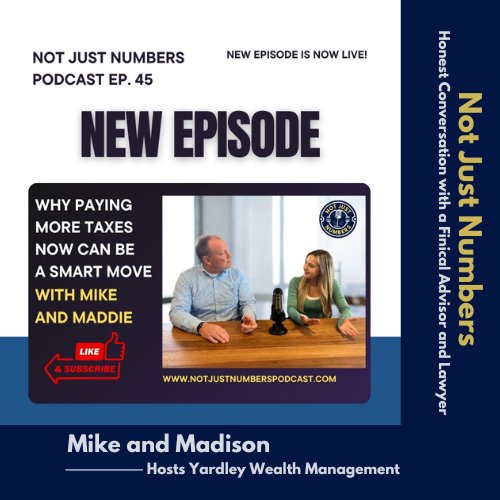Episode 45: Why Paying More Taxes Now Can Be a Smart Move
Hosts: Madison Demora and Mike Garry
Episode Overview
Listen to Our Podcast On:
TIMESTAMPS
00:08 – 03:00 – Introduction to episode topic: Why Paying More Taxes Now Can Be a Smart Move
03:01 – 06:43 – Why Some Resist Paying Taxes Early
06:42 – 08:14 – Determining If This Strategy Is Right for You
08:15 – 10:02 – Impact of Required Minimum Distributions
10:03 – 10:52 – Stealth Taxes and Their Impact
10:53 – 13:59 – What is a Roth Conversion?
14:00 – 15:06 – Things to Consider
15:07 – 17:23 – Leveraging the 0% Capital Gains Tax Rate
17:24 – 18:47 – Final Thought on Tax Strategies
Follow Us on Social Media
Stay updated with the latest episodes and news by following us on social media:



